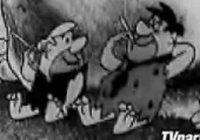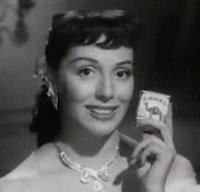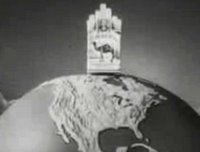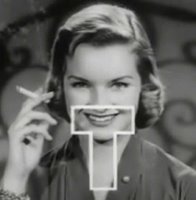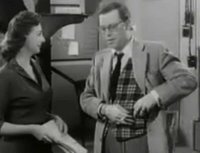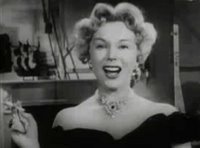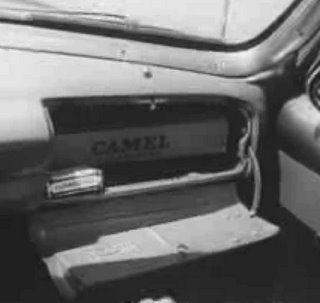I MARCHED OUT OF my building early yesterday morning under cloud-white skies and mist. Already, one of my compatriots was waiting: Steve was idling at the back end of my lot. A quick phonecall confirmed that Felix was incoming and eager to shake off a sleep deficit with a stop at Dunkin Donuts. To this we assented, even though I had two bottles of my own chosen heroin, Diet Coke, sweating through a paper bag from the bagel shop in my back seat. Once Dave arrived, we made for Emerson, tanked up on the other major liquid commodity in America, and aimed ourselves at the Paramus jump point into the three-lane hyperspace of the Garden State Parkway.
I've driven down to AC many times, but having two fellow lunatics in the car made the trip far swifter. I almost ran the car off the road twice from laughing. Fortunately, the rain had fulfilled my desire of thinning the shore traffic, so I didn't make the news by causing a 38-car pileup somewhere past the Driscoll Bridge. Perhaps another day.
The game plan was to play blackjack and/or craps. Both Steve and Dave are more familiar with the latter. Felix had practiced blackjack with a friend of his who was an old hand at the game, to the point where he had multiple decks of cards shuffled together and a dealer shoe to make the training feel more real. I was still working through the finer points of the "soft" blackjack hands (i.e., those that have an Ace in them). I was hoping we'd find a $5-minimum craps table at one of the casinos (they tend to go to $10 minimums later in the morning on weekends), ease into things, and then go to blackjack later. You don't have to commit as much cash to each hand at blackjack as you do with craps, so I figured BJ might help us bail out if we had a quick drop at dice.
We made good time getting down there, only stopping once when the coffee and Diet Coke caught up with us. It's actually been quite some time since I've been to AC, because I get my poker jollies locally with the Thursday crew. One striking difference I noticed from the Atlantic City Expressway was a new wind farm just north of the highway. Five giant propellers now towered above the lowlands near the Marina District, sharing the skyline with the bronze-Zippo profile of the Borgata. Any huge piece of energy machinery I get to see up close is a treat. When I was in Los Angeles, one of the highways took me past a thicket of oil pumps, like black bird skeletons sipping the riches of the earth. I've also stood next to the mammoth turbines in the heart of the Hoover Dam, with tens of thousands of gallons of water racing along behind layers of steel forged and joined long before my birth in the midst of the Great Depression.
We decided to start with Resorts, which was actually the first casino to go into Atlantic City back in 1978. Felix had been there a couple of times with his father when he first dipped his toe in the green felt pool. So we pulled into the lot (where I made a note of the parking level, deliberately marking a giant "2" on a receipt to attract the derision of my fellow gamblers) and hit the casino floor.
It was odd to walk into a casino with someone else coming along. Normally I storm in and beeline for the poker room. This time, it was more of a get-our-bearings entry, maybe less so for Felix, who had been here a few more times than I have. I had played at Resorts once before, years ago, when I made a trip up the boardwalk just alternating between blackjack and craps at each place. I recall losing at craps at Resorts to the tune of a couple hundred dollars. We located the table-game pits, and in fact spotted a $5 craps table. Steve decided to take a walk and look around first, leaving Felix and I to dig out our bankrolls and push the greenbacked victims out onto the plank.
A brief craps primer. Craps revolves around the number 7, the most frequent total to come up on two dice. It has different effects at different times in a game. To start, you place your money on the pass line, and the shooter (which can be someone else besides yourself) rolls the dice. If a 7 or an 11 comes up, the bet is paid even money—you win, and roll again. If a 2,3, or 12 is rolled, it's called "craps" and you lose your bet, but you do get to shoot again. Things get interesting when any of the remaining numbers come up. If the roll is 4, 5, 6, 8, 9, or 10, this becomes the
point, and the shooter must roll this number before he or she rolls a 7 to win (again, even money). He or she keeps rolling until either of those two events ends his hand.
Now, after that point number is first rolled, you can put down another bet in a space on the craps layout labeled "COME." This functions exactly the same way as the first roll — pays even money on 7 or 11, loses on 2, 3, 12, and sets a point on the other numbers that must be rolled again before a 7 to win — but if that roll is a 7, your first bet is lost. If you do roll a point number on a come bet, the money is moved to a box on the layout with that number in it, and the dealer will pay it off if the number comes up before the point is made or the shooter "sevens out." You can make any number of come bets you want, though most folks only make one or two, giving them two or three numbers in play at any given time.
To encourage even greater gambling madness, the casino allows players to bet on the numbers they've set as points themselves, based on the odds against their being rolled a second time before a 7 comes up. This
odds bet is done by placing more chips behind your pass line bet, or giving them to the dealer and telling him or her which bet they should go for. This is where the real money can change hands, because when you hit the numbers with odds bets on them, you get paid for both the number and the odds, which are paid out exactly (unlike a lot of other sucker bets you can make at a craps table in which the house takes a greater-than-equitable piece of the payoff to increase its advantage). The odds against making a 6 or an 8, a 5 or a 9, or a 4 or a 10 are 6:5, 3:2, and 2:1, respectively — and these are the proportions at which your odds bets are paid if the number hits. So if you have a $10 pass line bet with a point of 6, and $25 down as your odds bet, if you hit, you'll get your original $10 back, even money ($10) for winning the point, plus your odds bet, and $30 win on
that (30:25 = 6:5) for beating the odds that a 7 would come up before that second 6 is rolled, for a total profit of $40.
It took me one full year as a beginning casino-goer to understand craps well enough to type those three summary paragraphs, so don't feel bad if it makes no sense. And this is only part of what you can do at a craps table! The lesson is to show you how quickly money can change hands at a craps table. You can have three points going at once — say, 4, 5, and 8 — which if you back them all with the maximum odds most casinos allow, will represent an investment (at a $5 table) of $15 for the three points, plus odds bets of $15, $20, and $25 respectively, for a total of $75 working at one time. Win them all and you will profit $135; but if one 7 comes up after that third point is set, you lose it all. It's a fast, exciting game where everyone cheers for a shooter who is hitting numbers and paying his or her fellow players, but no deeper silence pervades a casino as when the dice, unperturbed by the greed and emotion shimmering in the air around them, halt with that evil number pointing skyward . . . a silence always followed by the clicking of chips being stacked by the dealers.
The pit boss greeted Felix and me and asked if we had comp cards. I had no idea if we'd be there long enough to make any comp points, but it never hurts to have your name on the list, in case the casino marketing department decided to send out a cheap-room deal. So we handed over our licenses, waited for the beginning of a roll, and then dropped our bills on the felt to get chips.
I only played craps for about a year before I swung into poker, and I've watched a lot of tables, so I racked my stack of chips with trepidation. This could go either way. The dice have no memory. The hot shooter can turn into an ice cube in one toss. You can go four revolutions around a table with no points being hit. The money I had brought down was my $400 tax return, money that came painlessly out of my paycheck over the past year and without which I would not default on a car payment or starve. I had added another $200 to pad it out past any rough spots. It's not like poker, where you can sit there for hours and play barely any hands. You have action on many rolls at craps, and on every deal in blackjack, and I wanted to come back with at least some. So this weekend's sacrificial cash fell squarely in the category of entertainment expenses — which, seeing as I'm not spending money on a trip to Las Vegas this summer, might as well be spent here. (My poker bankroll, by contrast, is entirely separate from all other sources of cash from which I pay bills or invest for retirement, so what happens there, as they say, stays there.)
I made some small progress through the first couple of shooters. I was playing very conservatively, placing only my pass line bet, no come bets, and only double odds behind the bet, even though the table permitted at least triple. No sense in digging a hole early. The mighty Felix was taking at least one come bet, eventually spreading to two, with double odds behind them. (Another shooter eventually bellied up and bought in for at least $1,500, and was placing black $100 chips on the layout, to our fascination and horror. My guess is that he was sleeping there for free.) When it came time for Dave to roll, he got a hot hand early, making a few points and putting me nearly $100 into the black. I dropped a little of it with my own first roll, though, which immediately followed Felix's.
By this time Steve had come up to the table and bought in. (The table minimum had also been raised from $5 to $10, which becomes notable later.) He was making pass and come bets and backing them with single odds, but he was also making some of the alternate bets the table offers, including an area called the
field, which is a loser if a 6, 7, or 8 come up, a winner on all the other numbers (which, by the way, come up less frequently than the first three I listed), but which pays double on the 2 and the 12. He was also making
place bets, betting directly on numbers to come up before 7 for a less-than-true-odds payoff. Some shooters only set one point with the dice, then place the 6 and the 8 directly to take advantage of their more common appearance (which can help if your point is the rarest 4 or 10).
Felix had a second hot streak while I was there, at which 8 kept coming up, including the so-called hard 8 (
hard numbers are what in Monopoly you'd call doubles: a roll of 2-2 for 4, 3-3 for 6, etc.) Eight is Felix's number, so this drove him into a frenzy, in which he played the hard 8 directly and hit it twice, once for himself, once for the dealers.
I profited from Dave's second hot roll, but after that it was downhill. I still was only betting on two numbers per roll, but a lot of these were low-frequency numbers like 9 or 10, and many got knocked down with 7s. At the higher $10 minimum, my win evaporated and my stake being eaten up. With odds bets behind each point number, that was an investment per roll of $60, so those 7s were expensive. With the whole rest of the day open for a second assault, I called a halt at a loss of $179. The table was kinder to Dave and Steve, who eventually stopped when noon approached and we all realized how damn hungry we were.
We took a stroll up and down the boardwalk, where a light rain came and went and fog obscured the ocean and the tops of the casino towers. Eventually we grabbed some grub from a cheesesteak kiosk. I was eager to keep playing, but I was nervous about losing more to craps. An old poker lesson came to mind:
The first loss is the smallest. I wanted to try some blackjack, at which the money would rise or sink at a slower pace, but the guys seemed to want a second go at dice.
When we returned to the casino, I noticed that the poker room (which was more of a nook with six tables cut off from the main flow with velvet rope) was finally in use. A $2/$4 limit table was rolling, and a few seats stood open. I told Steve and Felix to go for round 2 at the craps table, and that I would get my mitts on some cards. To this they readily assented.
(I Shit You Not Moment: WFMU is playing Motörhead's "Ace of Spades"
right now. You can't make this up, folks. "Read 'em and weep—the Dead Man's Hand again!")
Two-dollar/four-dollar limit hold'em is just about the cheapest poker game you can find at a casino, and the players' skill tends to be quite low. This one was no exception. Everyone was seeing the flop with everything, few people raised preflop, flop bets meant they either had one pair or an Ace in the hole, and they chased straights or flushes despite turn and river raises. I was the tightest player (i.e., the player who bet least frequently preflop) at the table by a wide margin. Every low-limit stereotype was present: newbies who think they're experts because their pocket Aces held up, oldtimers who lose to said newbies and grumble about how they're not there to have fun but to win, younger guys who play lockstep with the advice in the books and whose cards might as well be face up, the short-buy-in guy who folds everything and then gripes when the flop would have helped him, and the self-dubbed poker Solomon who never shuts up and drops such nuggets as, "I had Aces too, but I knew they wouldn't win, so I folded to you," and "Nothing has lost more money in poker than the concept of pot odds." I was surprised I could actually hear that last one with the guy's head so far up his ass.
I was there just short of an hour, and though I was down by $5 when I played my last hand to a win and joined Felix and Steve beyond the rope, I know the swing that had led to that minor loss (the woman that got AA in the list above flopped a flush) would have been temporary. I noticed they had opened a slightly more expensive $3/$6 table, and that the player pool looked largely the same. If you can beat 'em at the lower limit, and you've got the roll for it, go and beat 'em at the higher limit. If I could play $5/$10
no limit against some of the players at that table, I would have. At craps, you takes your chances, you places your chips, you makes your rolls, and you win or lose. There is randomness in poker, but over tens of thousands of hands, what will emerge is skill . . . and I don't mean to brag, but I had that table beat on that count.
At the rail, Felix was jubilant. He had more than doubled his buy-in, and Steve had scored a nice win as well. So at least someone avenged themselves on the table for my loss. Steve further stuck it to the house by sliding a token $5 into a slot machine on the way out and coming away $22 richer. We fled to the cashier cage before the thugs came to correct this temporary reversal of the money flow, dashed to the car, and escaped.
Once back on the highway, we got home with no weather or traffic disruptions. We took some time to heap scorn on Bill for choosing not to go, and Felix extracted an admission that at least part of Bill's reneging was related to the early departure. All in all, despite the craps loss, it was a fantastically fun time. I would definitely go down again. Not sure if I'd stick with the craps, because I have seen firsthand how crummy their poker regulars are, and looting them seems a surer bet. Also, I've redone my tax forms so I should no longer get any sort of return (if the Feds want to borrow $$$, I'll do it with a T-bill, not a zero-interest loan), so the "free-money" train that rolls around each April will no longer make a stop here. More important, though, I've finally gone on a casino crusade with my gang. I declined to go on one with the poker regulars because it was just before my mother's surgery back in April, but I should try to get in on the planning for the next one. And beyond that, I can see this as the lure that finally gets a massive group invasion of Las Vegas going. See you at the $2 craps table at the Casino Royale!!

